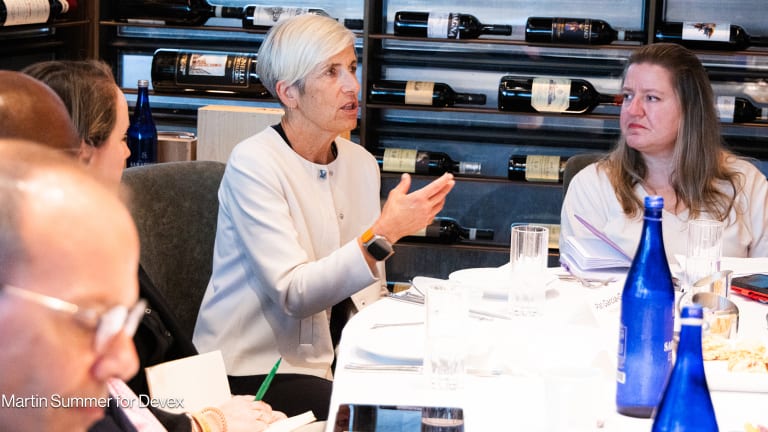
The global development community is getting better at testing different development approaches, sharing results and failures, and collaborating on unconventional ways we think about, support and implement development initiatives. Yet, too many initiatives fail to address the tremendous complexity of development challenges, promoting irrelevant interventions that have little impact.
Doing Development Differently is a global initiative designed to facilitate a dynamic conversation about ways to achieve greater development impact. The DDD Manifesto — the primary output of our first forum convened in October 2014 — captures and characterizes the beliefs and positions of an eclectic group of development practitioners seeking a new direction. The manifesto also suggests some important common principles that we can build on as we carry this initiative forward.
Among many practical lessons shared during our first meeting, we learned that development interventions, across sectors, can benefit from a step-by-step process of learning and adaptation, rather than employing rigid and inflexible designs. Small bets built gradually over time can result in far-reaching and more sustainable change. Less tangible products like trust and local engagement and empowerment create a productive and durable space for change to take hold and scale.
Over 400 people from more than 60 countries and hailing from bilateral organizations, multilaterals, governments, academia, nongovernmental organizations and the private sector, as well as independent development practitioners, have signed up to the manifesto and continue to contribute their own thought leadership.
As we look to expand and operationalize the initiative further and embark on our second forum next week in Manila, Philippines, here are a few key thoughts.
First, DDD is not for everyone and everything, but targets gaps in the development experience. We do not argue that development has failed outright, or that there is no place for the more conventional approaches to development (based on best practices, adopted through structured projects, etc.). We would, however, agree with many other observers that there are gaps in the development experience — where results are not as strong as most people would hope. These areas tend to have the characteristics of complex problems; involving many messy relationships and uncertainty, dynamic by nature and without clear answers. These are the gaps where we need to learn how to do development differently — and better.
Second, we do not hold all the answers about DDD, and that is why we will continue to collaborate and share experiences. The DDD work is part of a long line of efforts to foster different ways of thinking about what to do and how to do it (and that connects these questions in a way that conventional project mechanisms do not). We build on work by many people who have contributed to thinking about the very issues we are examining. As a community, however, we do not think that we have all the answers — even with all the work that has gone before us. Building on Albert Hirschman, we believe that the lessons of development will emerge by observing projects and examining how and why some projects work and others do not. We expect that answers will come by getting together and observing, discussing and learning.
Third, we find that real experience — rather than studies or theory — is our best guide to DDD. We believe that there are many interesting development projects and experiences to observe and learn from. These projects and experiences are not the same; they adopt different methods at different times and depart from convention in varying ways and to varying degrees. We believe that there is a huge amount to learn from convening actors who have actually been involved in these experiences; capturing their stories, and adding them to other stories. This is the DDD approach. It will, over time, lead to a repository of oral and written stories about DDD that anyone can access, building up what might be called the lore of DDD. Practitioners can follow up on these experiences, learning from peers about alternative approaches they might experiment with when facing gaps in achievement. Researchers can follow up these stories as well, to validate, analyze and make more formal sense of the narratives.
Finally, DDD demands working with and through many different actors. Inclusivity is critical because “doing development” requires people who identify problems, think up new ideas, finance experiments, motivate, implement, convene, connect, empower and more. We are excited that signatories of the DDD Manifesto come from all over the world and represent a blend of thinkers, funders, managers and implementers. We believe that all of these actors need to be engaged in the DDD conversation — to better understand the challenges of working in this way, as well as the opportunities for doing so.
On April 27-28, 2015, the Overseas Development Institute and The Asia Foundation will explore examples of Doing Development Differently in Manila, Philippines. Follow @Devex and #differentdev on Twitter for live coverage.
Join the Devex community and access more in-depth analysis, breaking news and business advice — and a host of other services — on international development, humanitarian aid and global health.










